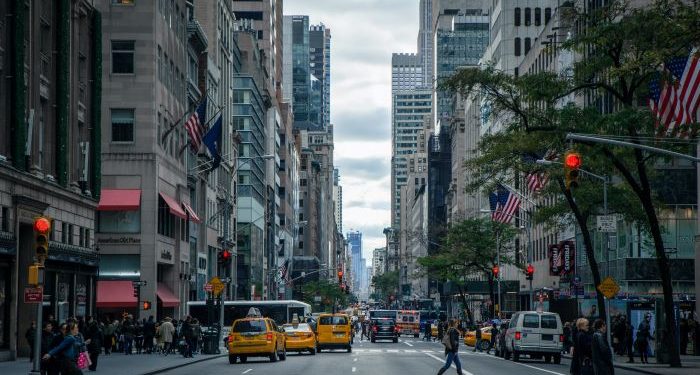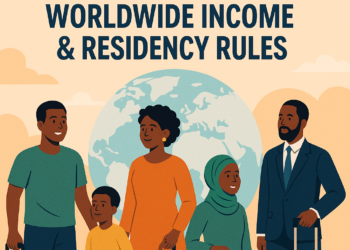New York City, a global hub for travellers seeking diverse experiences, is now at the centre of a major shift in its approach to short-term rentals (STRs).
This transformation stems from recent regulatory changes that demand property owners obtain official registration numbers for rentals lasting less than 30 days.
In this article, we delve into the repercussions of this new law, particularly on the Airbnb business model and the experiences of holiday makers exploring the city.
Latest Development: The New Law
The latest development in New York City’s regulatory landscape is poised to disrupt the short-term rental market significantly.
Under these fresh regulations, property owners must secure official registration numbers to offer rentals for periods less than 30 days.
This presents a formidable challenge for platforms like Airbnb, which have thrived on providing diverse, short-term accommodation options to travellers.
One of the key objectives cited by city officials for these regulations is to uphold the health and safety of both visitors and residents.
Additionally, the city aims to combat the proliferation of illegal STRs, a practice deemed detrimental to the housing market.
To obtain approval for short-term rentals, hosts must adhere to stringent criteria, including residing in the same unit as their guests and limiting the number of guests to just two.
Even property owners who live in the same building find themselves navigating these stringent requirements.
The introduction of this new law, effective as of Tuesday 5th September, marks a significant departure from the past.
It means that a substantial number of listings on platforms such as Airbnb will no longer be available for stays of less than 30 days unless property owners have successfully completed the city’s rigorous application process and received official registration numbers.
This process, designed to ensure compliance with the law, has raised concerns among hosts and the broader tourism industry.
Spiral Effect in the Market
The implementation of these regulations has set off a ripple effect throughout the short-term rental market. Airbnb, a trailblazer in the sharing economy, has raised concerns over the impact of these rules on both hosts and the city’s tourism industry.
A significant portion of listings on Airbnb will no longer be available for stays shorter than 30 days unless property owners successfully complete the city’s rigorous application process.
While the city argues that these measures are essential to protect the health and safety of visitors and residents, Airbnb contends that these rules effectively amount to a “de facto ban” on short-term rentals.
According to the company, this will not only hurt hosts who rely on Airbnb income but also have a chilling effect on the city’s tourism economy.
The requirements for approval are strict and follow laws that pre-date the new registration rules.
- Notably, “short-term rentals are only permitted if the host is staying in the same unit or apartment as the guests, and there are no more than two guests staying with the host,” the city’s website says.
This is true even if the host lives in or owns the building, to the consternation of some homeowners who rely on rental income.
Looking Ahead
In conclusion, the recent changes in New York City’s STR regulations have the potential to reshape the Airbnb business concept and influence the choices of holiday makers.
While the full impact on tourism is still unfolding, industry experts foresee shifts in the availability and nature of short-term accommodations in the city. Group travel and the nature of lodging could be most affected by these changes.
The future of short-term rentals in New York City remains uncertain, and travellers planning visits to the city should stay informed about evolving regulations that may impact their accommodation choices.
Suggestion to Airbnb Users
For those planning to use Airbnb for their New York City stay, it’s essential to stay informed about the latest regulations and the impact they might have on your travel plans. Here are some suggestions to consider:
- Check Listing Details: When browsing Airbnb listings in New York City, pay close attention to the minimum stay requirements. Listings that specify a minimum stay of 30 days are likely to comply with the new regulations. If you’re planning a shorter visit, these listings may not be suitable for your needs.
- Communication with Hosts: Before booking, communicate with your potential host to ensure that their property aligns with your travel plans. Ask about their registration status and whether they can accommodate shorter stays if that’s what you need.
- Alternative Accommodations: Explore alternative accommodation options, such as hotels, extended stay rentals, or serviced apartments, if you find that Airbnb listings are limited due to the new regulations. These options can provide flexibility for shorter stays.
- Stay Informed: Keep an eye on updates regarding the evolving regulations in New York City. Regulations can change, so staying informed can help you make informed decisions about your accommodation.
- Booking Flexibility: Consider booking accommodations with flexible cancellation policies, especially if your travel plans might be subject to changes due to regulatory developments. This provides some peace of mind in uncertain times.
In a dynamic environment like New York City’s rental market, adaptability and staying informed are key to ensuring a smooth and enjoyable stay. By considering these suggestions, you can navigate the changing landscape and make the most of your visit to the city.
For any enquiries please, email our editorial team at [email protected]. If you liked this story, kindly sign up for Clariform Newsletter, a handpicked selection of stories that helps you clarify things that matter and gives you clear signals about your world, delivered directly to your inbox.
Please subscribe to our YouTube channel, and join thousands of Clariform on Facebook, Twitter and Instagram.












